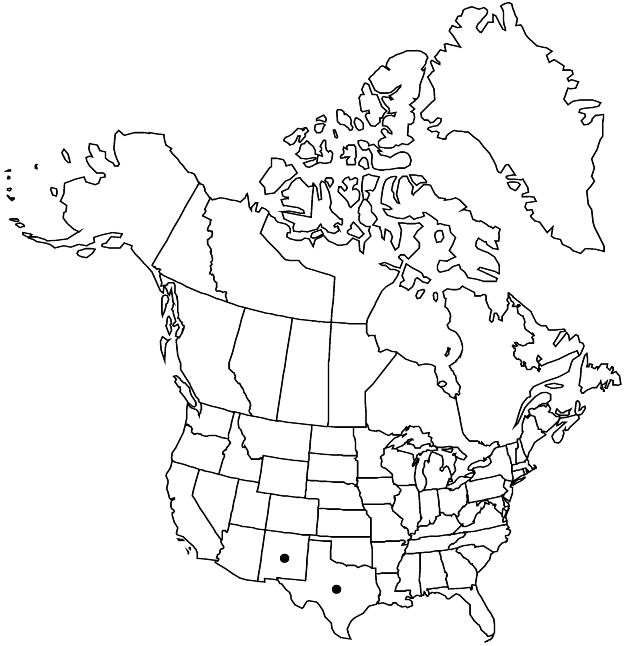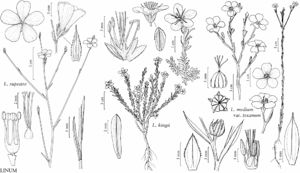Linum rupestre
Boston J. Nat. Hist. 6: 232. 1850.
Herbs, perennial, 20–75 cm, glabrous or rarely sparsely hairy proximally. Stems erect, branched at base and in inflorescence. Leaves opposite near base or alternate throughout, appressed-ascending; stipular glands present; blade linear to linear-lanceolate, 8–20 × 0.5–2.1 mm, margins entire or with scattered minute marginal glands, not ciliate, apex acute; 1-nerved. Inflorescences panicles, with ascending to spreading branches. Pedicels 0–3 mm. Flowers: sepals persistent, lanceolate to ovate, 2.5–5 mm, margins of inner sepals narrowly scarious, conspicuously glandular-toothed, apex acute or acuminate; petals lemon yellow, oblanceolate or narrowly obcordate, 7–11 mm; stamens 2–8 mm; anthers 0.5–1 mm; staminodia present; styles distinct, 3–6.5 mm; stigmas capitate. Capsules ovoid, 2–3 × 2–2.5 mm, apex sharp-pointed, dehiscing readily into 10, 1-seeded segments, segments falling freely, false septa incomplete, false and true septa margins ciliate. Seeds 1.2–1.9 × 0.7–1.1 mm. 2n = 36.
Phenology: Flowering Apr–Aug.
Habitat: Sandy soils, rocky slopes and ledges, often on limestone.
Elevation: 150–1500 m.
Distribution

N.Mex., Tex., Mexico (Chihuahua), Mexico (Coahuila), Mexico (Durango), Mexico (Nuevo León), Central America (Guatemala)
Discussion
Linum rupestre has narrowly funnelform corollas and yellow stamens and styles. The anthers and stigmas are held closely adjacent at the mouth of the corolla tube, below the broad, spreading limbs. The species occurs from southeastern New Mexico and central Texas to Guatemala. It often grows with L. schiedeanum in Texas and Mexico.
Selected References
None.
Lower Taxa
"wider" is not a number.
